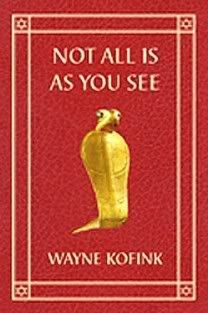BEARING FALSE WITNESS
I recently came across the following in a blog by Martin Marty, the leading light among American Lutheran church historians.
During our nation’s momentary fit of proposing that we exercise more civility in public life and before we turn back to our uncivil ways, we have time to reflect on the question: are there overlooked sources to which the public, or at least huge chunks of it, can respond and should put to work? The one I will offer will sound extremely particular, parochial, and sectarian. It asks: what if God, as revealed to the vast majority in this Judeo-and Christian culture, were called upon and listened to?
I will draw on the tradition in which I was brought up and still cherish, as I paddle in ecumenical waters and interfaith seas. That source is Martin Luther’s The Small Catechism, which we kids memorized, or his The Large Catechism, which remains an adult guide.
His explanation to the Eighth/Ninth Commandment . . .
Here it is, in modern translation: You are not to bear false witness against your neighbor, which means, We are to fear and love God, so that we do not tell lies about our neighbors, betray or slander them, or destroy their reputations. Instead we are to come to their defense, speak well of them, and interpret everything they do in the best possible light. Ow!, and again I say unto you, Ow!
Martin Marty
It’s a clever piece of writing. I wish all the people who claim the name of Christian would follow Luther on this point. In the heated atmosphere of our current controversial age, people seem prone to do anything but interpret everything in the best possible light. If party A proposes something, party B must oppose it because nothing party A does can possibly arise from good motives. This holds true even if ten years ago party B proposed the exact same thing. Each side condemns the other as being out to destroy the country.
I’ve seen churches torn apart by the same problem. People disagree on something. Each side becomes unable to credit the other side with any good intentions. Everything is twisted and distorted to make it look as bad as possible. And sometimes the issue is something as minor as whether the service should be at 10:00 or 10:30.
Then there is the part about slandering others or destroying their reputation. I once served on the board of a Christian School. A decision of the board met with opposition by some of the parents. One of the parents spread vile rumors about me in order to undermine the board’s decision. Fortunately, there were many parents who knew me personally and who did exactly what Luther instructs us–spoke well of me and came to my defense. The slander was silenced in a few days.
I don’t suppose telling all the Christians who have the public ear that telling lies about another person violates God’s commandment will have much affect on them. People seem to have become very selective about what constitutes sin. So twisted things have become that telling lies is justified by claiming it is the truth. Fiddlesticks! If we aren’t putting the best construction on others, we are breaking the commandment.
Ah well, time to get off the soap box. I’m going to take Candide’s advice: “we must cultivate our garden.” I have some lettuce and basil plants that need tending. They don’t stand up too well to all the heat we have had this spring. Come to think of it, people don’t stand up too well to the heat either.
May the Lord bless you on your journey and greet you on your arrival.
Wayne
16907








